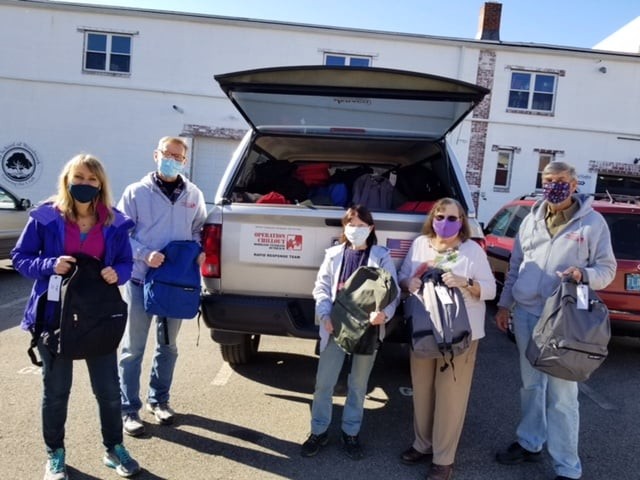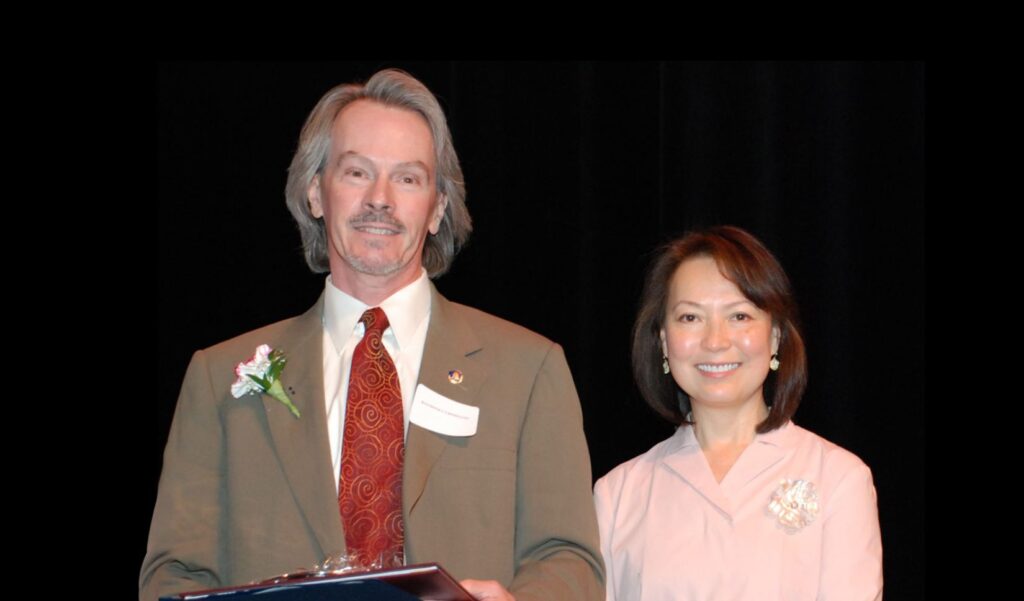On December 21, 2000, Ray Chimileski and two friends went on a journey that would forever change their lives, and make an enormous impact throughout New Jersey. The words “homeless & veteran” never crossed paths in their vocabulary until they read a newspaper article that claimed that a homeless veteran was living under a nearby railway bridge.
In disbelief, they headed to the police station to get the exact location of the homeless veteran. They were told he could be found under a railway bridge beneath a diner on Route 46 in Dover. Ray and his friends set out to find him, not knowing what to expect. They slowly approached a mini house made out of plywood and tapped on it. A voice responded, “Who is it? What do you want?” The group came face to face with a man in a sleeping bag, living in this makeshift house. They told him they wanted to help.
The man asked the group to take him to breakfast, and he would tell his story. He confirmed that he was a veteran of the Vietnam War. Upon return, he was diagnosed with PTSD, which eventually led to losing his job, his family, and his home.
After meeting this man and learning about his background, the group couldn’t just leave him. They asked what they could do to help. It was December, so he asked for some warm clothing. They headed to the Army-Navy store down the street and bought gloves, knit caps, and thermal tops and bottoms. They packed the items in a bag, and he went on his way. This was the birth of their organization, Operation Chillout.
Operation Chillout: Caring for Homeless Veterans
Operation Chillout is an all-volunteer mobile outreach for homeless veteran women and men, serving all of New Jersey, Northeast Pennsylvania, and coastal Rhode Island. All year long the organization receives and responds to referral phone calls from family and friends of homeless veterans providing information regarding the location of homeless veterans. The team goes out to find them and see if they would be willing to move into a motel or shelter. Ray explains, “The model of Operation Chillout is very unique. No salary, no office, no overhead. The money goes to operations and our programs.” He adds, “We have enough volunteers to do what we do. The money we have is used to pay for over thirty people to stay at a motel or hotel.”
Shelters vs Motel or Hotels – Why It Matters to Homeless Veterans
Operation Chillout prefers to send their veterans, who commonly have PTSD, to motels or hotels because they sometimes have a difficult time staying at shelters. PTSD stands for Post-Traumatic Stress Disorder and symptoms include having flashbacks, upsetting memories, and anxiety following a traumatic event. The National Vietnam Veterans Readjustment Study, conducted in the late 1980s, found that 15 out of 100 veterans were diagnosed with PTSD. The subsequent analysis estimates 30% of Vietnam Veterans have had PTSD in their lifetime. Ray explains the primary reason veterans become homeless is due to problems adjusting to civilian life, which is often related to an emotional and psychological injury resulting from PTSD. He’s seen firsthand how PTSD disrupts the daily lives of veterans, causing nightmares, confusion, and impatient behavior.
The Annual Winter Backpack Drive for Homeless Veterans
One of Operation Chillout’s signature initiatives is its annual Winter Backpack drive. Donors provide funds for backpacks that contain winter essentials for homeless veterans, both those living in shelters and those still on the streets. Teams of volunteers pack and deliver packs to shelters, and give them directly to veterans they find on the streets. During the summer months, Operation Chillout collects and delivers cases of bottled water, T-shirts, and baseball caps to provide hot weather protection.

The Long Journey to End Homelessness Among Veterans
Ending homelessness among veterans has been a huge challenge, but significant progress has been achieved. In 2020, the number of veterans experiencing homelessness was 50% lower compared to 2009. Ray commented on this progress: “The idea of getting an early screening and treatment for PTSD has become more accepted. The US now understands the outcome of having PTSD after combat. They offer treatment that was not available during the Vietnam War.”
It’s been a long journey building this unique support system for homeless veterans, yet Ray believes Operation Chillout has more to contribute. He aspires to begin a non-profit charitable trust, and wants to help organizations in the area replicate Operation Chillout’s model. He says, “We want to help people do what we do differently.”
In 2008, Ray Chimileski was recognized with the Russ Berrie Making a Difference Award for his vision and commitment to helping homeless veterans through Operation Chillout. Nearly 15 years later, he is still passionate about “serving those who served.” We are proud that he is a member of our Honoree Community.
Visit Operation Chillout to learn more.
By Alexis Jones
Ramapo College, ‘23 Student Assistant for Communications & Outreach, Russ Berrie Making a Difference Award
